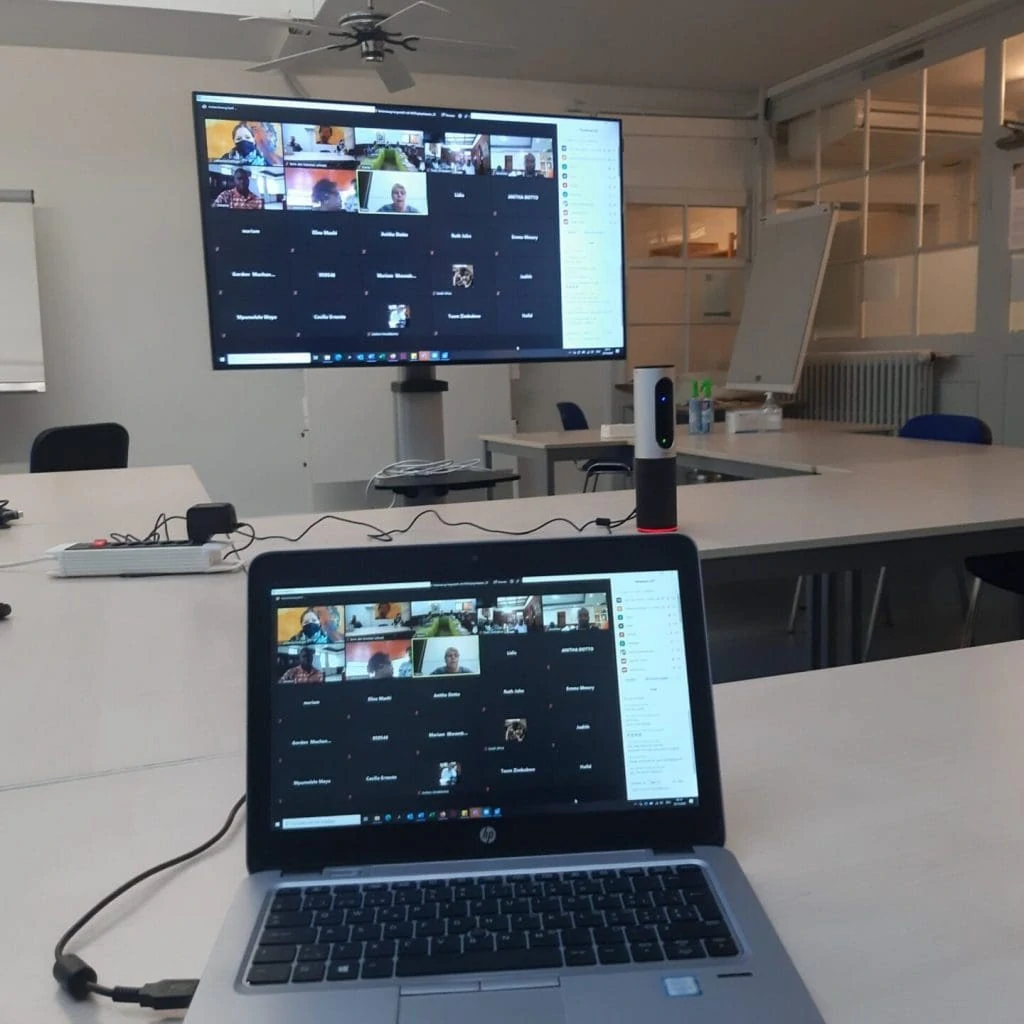At the end of October, 50 professionals from five countries in two continents and three time zones met on the SRHR platform of terre des hommes schweiz. The theme was sexual health in working with young people in southern Africa. Due to the pandemic, the conference took place in digital space. Hafid Derbal, project coordinator for Zimbabwe and South Africa and health officer at terre des hommes schweiz, was one of the organisers.
SRHR is the abbreviation of Sexual and Reproductive Health and Rights. What is the purpose of the SRHR platform of terre des hommes schweiz?
Hafid Derbal: Every four years we meet with local partners from Southern Africa who work with young people on teenage pregnancies and HIV/AIDS. We look back, share our experiences and define our joint planning for the near future - at eye level. We also invite organisations from our network and external experts to participate.
What does planning "at eye level" mean?
The concrete work with the young people is not done by us, but by the local partners in Mozambique, Tanzania, Zimbabwe and South Africa. It is therefore important and right that their expertise and assessments are incorporated into our joint approach. The SRHR platform is a space for joint reflection. Where has it gone well, where do we need to change something and what should be approached from scratch?
Can you give a few examples that you discussed during the conference?
For example, the issue of human and health rights or institutional strengthening. This means that in recent years our partners have increasingly expressed the wish that we support them in the area of project evaluation for impact measurement. This time we brought in an expert from South Africa.
Or we exchanged views on the question: Are there any new findings regarding menstrual hygiene? How do we involve young men when it comes to violence against women and its prevention? Which media and communication channels are particularly good at reaching young people?
One question that keeps us busy is: How can we address the issue of sexual health among young people? Although they are our main target group, we cannot reach them in isolation from their social environment. Their families, parents, teachers, health professionals or traditional leaders and policy makers must first understand, approve and, above all, support our work with young people. Without their trust and cooperation, nothing will work and to achieve this requires a lot of patience, sensitivity and good planning of cooperation.
Due to the Corona pandemic, the SRHR platform was held online.
It was a mixture of digital and physical conference. Digital was the exchange across countries and continents. For the practical group exercises on site, the participants were gathered in one room with the necessary technical infrastructure and a functioning Internet connection.
We had been facing the situation: Either we leave out the SRHR platform or we carry it out online - for the first time and at very short notice. terre des hommes schweiz is a learning organisation and so we take on such challenges. Together we considered what can be implemented digitally and what not? We asked the health network Medicus Mundi Switzerlandwho have a lot of experience with digital communication, according to their experiences. So we were able to join forces and create a digital platform that worked well. It was intense and enriching!
Digital communication is exhausting. How did you structure the conference programme to prevent fatigue?
Each topic, each input was then first discussed in the physical small groups. Afterwards we all met again in the virtual room of the video conference for the joint post-processing with feedback round. It worked out very well and I was very impressed: everyone was fully engaged.
The SRHR platform was a magnificent pioneering achievement by our team. The cooperation with our colleagues in the project countries worked excellently, because we speak the same language and already know each other well.
So will online communication replace terre des hommes switzerland's expensive and environmentally damaging project trips to southern Africa and Latin American countries in the future?
The digital exchange platforms that we already had before the health crisis, although not to the same extent, will clearly remain part of our work. However, they cannot replace the project trips.
At terre des hommes schweiz we are lucky to have local staff on site. They can come back to visit our projects with young people, taking into account the Covid-19 protection measures. But it also requires direct personal contact with our local partners and with the people who benefit from the projects, especially the young people.
How can the "success" of a project trip be described?
For example, you can feel the dynamics of whether or not things are going well in the partner organisation. You take note of the situation in the country, for example in a conversation with the taxi driver, you find out how the young people are doing in the projects, you meet with other aid organisations and so on. The project trip is to a certain extent a part of project monitoring. Conversely, for our partners in the Global South, it is an important moment for direct exchange with Switzerland.
Project trips strengthen mutual trust and understanding for each other. If you visit the projects in person from time to time, you will also be able to travel together in a different way in digital exchange and achieve more together.
Interview: Anna Wegelin
More information about our work focus on sexual and reproductive health here
External link: Hafid Derbal and Tayson Mudarikiri on the increase in sexual violence in South Africa and the additional workload in view of the Corona pandemic here


